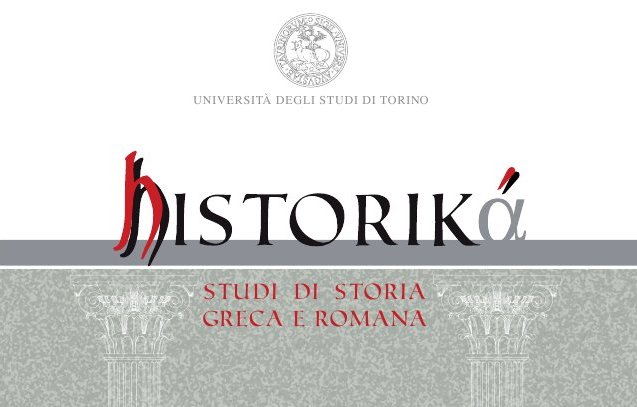«Μέγα τὸ τῆς θαλάσσης κράτος» (Θουκ. Ι 143, 5): αρχαιολογία της ιδέας
DOI:
https://doi.org/10.13135/2039-4985/1927Abstract
This is a philological study that deals with the articulated ideas and it is not in the least concerned with the historicity of events; it is not the events but the ideas that I thought are worth writing about (cf. I 22, 2). ‘Archaeology’, the title of this paper, refers – with a certain degree of ambiguity – first to the Archaeology of Thucydides, next it includes the connotation of Archaeology as excavation of the idea in Thucydides and Old-Oligarch, the sea-power of Polycrates in Herodotus, the Catalogue of the Ships in the second Book of the Iliad and the third chorus of the Persians of Aeschylus (852-907). In addition, the notion of ‘archaeology’ involves the components of the idea in Hesiod and Homer, and its survival in Xenophon’s Hellenica and in Isocrates, and, finally, its philosophical foundation in works of Plato and Aristotle; the study of the notion of Archaeology culminates with Atlantis and the works Timaeus and Critias of Plato.Downloads
Published
Issue
Section
License
The authors who publish in this magazine accept the following conditions:
a) The authors retain the rights to their work and assign the right of first publication of the work to the magazine, simultaneously licensed under a Creative Commons License - Attribution that allows others to share the work indicating intellectual authorship and the first publication in this magazine.
b) Authors may adhere to other non-exclusive license agreements for the distribution of the version of the published work (e.g. deposit it in an institutional archive or publish it in a monograph), provided that the first publication has taken place in this magazine.


 The journal has been approved for inclusion in DOAJ. The DOAJ listing of the journal is available at
The journal has been approved for inclusion in DOAJ. The DOAJ listing of the journal is available at 
